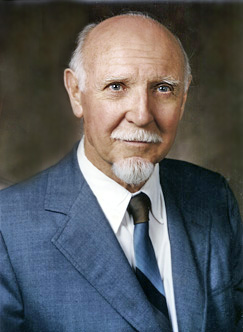Related Research Articles

Arthur Robert Jensen was an American psychologist and writer. He was a professor of educational psychology at the University of California, Berkeley. Jensen was known for his work in psychometrics and differential psychology, the study of how and why individuals differ behaviorally from one another.

An intelligence quotient (IQ) is a total score derived from a set of standardised tests or subtests designed to assess human intelligence. The abbreviation "IQ" was coined by the psychologist William Stern for the German term Intelligenzquotient, his term for a scoring method for intelligence tests at University of Breslau he advocated in a 1912 book.
John Philippe Rushton was a Canadian psychologist and author. He taught at the University of Western Ontario until the early 1990s, and became known to the general public during the 1980s and 1990s for research on race and intelligence, race and crime, and other purported racial correlations.
Discussions of race and intelligence – specifically, claims of differences in intelligence along racial lines – have appeared in both popular science and academic research since the modern concept of race was first introduced. With the inception of IQ testing in the early 20th century, differences in average test performance between racial groups were observed, though these differences have fluctuated and in many cases steadily decreased over time. Further complicating the issue, modern science has shown race to be a social construct rather than a biological reality, and intelligence has no undisputed definition. The validity of IQ testing as a metric for human intelligence is itself disputed. Today, the scientific consensus is that genetics does not explain differences in IQ test performance between groups, and that observed differences are environmental in origin.

Human intelligence is the intellectual capability of humans, which is marked by complex cognitive feats and high levels of motivation and self-awareness. High intelligence is associated with better outcomes in life.

Hans Jürgen Eysenck was a German-born British psychologist who spent his professional career in Great Britain. He is best remembered for his work on intelligence and personality, although he worked on other issues in psychology. At the time of his death, Eysenck was the most frequently cited living psychologist in the peer-reviewed scientific journal literature.
The g factor is a construct developed in psychometric investigations of cognitive abilities and human intelligence. It is a variable that summarizes positive correlations among different cognitive tasks, reflecting the fact that an individual's performance on one type of cognitive task tends to be comparable to that person's performance on other kinds of cognitive tasks. The g factor typically accounts for 40 to 50 percent of the between-individual performance differences on a given cognitive test, and composite scores based on many tests are frequently regarded as estimates of individuals' standing on the g factor. The terms IQ, general intelligence, general cognitive ability, general mental ability, and simply intelligence are often used interchangeably to refer to this common core shared by cognitive tests. However, the g factor itself is merely a mathematical construct indicating the level of observed correlation between cognitive tasks. The measured value of this construct depends on the cognitive tasks that are used, and little is known about the underlying causes of the observed correlations.
Intelligence has been defined in many ways: the capacity for abstraction, logic, understanding, self-awareness, learning, emotional knowledge, reasoning, planning, creativity, critical thinking, and problem-solving. More generally, it can be described as the ability to perceive or infer information, and to retain it as knowledge to be applied towards adaptive behaviors within an environment or context.

Raymond Bernard Cattell was a British-American psychologist, known for his psychometric research into intrapersonal psychological structure. His work also explored the basic dimensions of personality and temperament, the range of cognitive abilities, the dynamic dimensions of motivation and emotion, the clinical dimensions of abnormal personality, patterns of group syntality and social behavior, applications of personality research to psychotherapy and learning theory, predictors of creativity and achievement, and many multivariate research methods including the refinement of factor analytic methods for exploring and measuring these domains. Cattell authored, co-authored, or edited almost 60 scholarly books, more than 500 research articles, and over 30 standardized psychometric tests, questionnaires, and rating scales. According to a widely cited ranking, Cattell was the 16th most eminent, 7th most cited in the scientific journal literature, and among the most productive psychologists of the 20th century. He was, however, a controversial figure, due in part to his alleged friendships with, and accusations about possible intellectual respect for, white supremacists and neo-Nazis.
Michael Anthony Arbib is an American computational neuroscientist. He is an Adjunct Professor of Psychology at the University of California at San Diego and professor emeritus at the University of Southern California; before his 2016 retirement he was the Fletcher Jones Professor of computer science, as well as a professor of biological sciences, biomedical engineering, electrical engineering, neuroscience and psychology.
Sandra Wood Scarr was an American psychologist and writer. She was the first female full professor in psychology in the history of Yale University. She established core resources for the study of development, including the Minnesota Transracial Adoption Study and the Minnesota Adolescent Adoption Study. She served as president of multiple societies including the Association for Psychological Science and was honoured with multiple awards including the James McKeen Cattell Fellow Award. She was also active in the development of commercial childcare. Her work with twins in the 1960s revealed strong genetic influences on intellectual development. One of her key findings was that this differed with race and socioeconomic status (SES), with poor and non-white children showing less genetic influence on their IQ and more environmental influence. She demonstrated a successful intervention in premature infants, showing that stimulation improved their health and developmental outcomes.

"Mainstream Science on Intelligence" was a public statement issued by a group of researchers of topics associated with intelligence testing. It was published originally in The Wall Street Journal on December 13, 1994, as a response to criticism of the book The Bell Curve by Richard Herrnstein and Charles Murray, which appeared earlier the same year. The statement defended Herrnstein and Murray's controversial claims about race and intelligence.
K. Anders Ericsson was a Swedish psychologist and Conradi Eminent Scholar and Professor of Psychology at Florida State University who was internationally recognized as a researcher in the psychological nature of expertise and human performance.
An elementary cognitive task (ECT) is any of a range of basic tasks which require only a small number of mental processes and which have easily specified correct outcomes. Although ECTs may be cognitively simple there is evidence that performance on such tasks correlates well with other measures of general intelligence such as Raven's Progressive Matrices. For example, corrected for attenuation, the correlation between IQ test scores and inspection time is about 0.5. It has been found that when a battery of ECTs is factor analyzed, the general factor that emerges from this is strongly correlated with general intelligence extracted from traditional IQ batteries, and relates similarly to other variables.
Timothy C. Bates is a professor of differential psychology at the University of Edinburgh. His research interests include the genetics of reading and spelling, intelligence, and personality.

The Jensen box was developed by University of California, Berkeley psychologist Arthur Jensen as an experimental apparatus for measuring choice reaction time (RT) and individual differences in intelligence.
The history of the race and intelligence controversy concerns the historical development of a debate about possible explanations of group differences encountered in the study of race and intelligence. Since the beginning of IQ testing around the time of World War I, there have been observed differences between the average scores of different population groups, and there have been debates over whether this is mainly due to environmental and cultural factors, or mainly due to some as yet undiscovered genetic factor, or whether such a dichotomy between environmental and genetic factors is the appropriate framing of the debate. Today, the scientific consensus is that genetics does not explain differences in IQ test performance between racial groups.
Arnold Herbert Buss was a professor emeritus of psychology at the University of Texas at Austin known for his work in aggression, temperament, self-consciousness and shyness.
Wendy Johnson is an American differential psychologist and professor of psychology at the University of Edinburgh. She holds the chair in Differential Development in the Department of Psychology and Centre for Cognitive Ageing and Cognitive Epidemiology at the University of Edinburgh.
Jensenism is a term coined by New York Times writer Lee Edson. Named after educational psychologist Arthur Jensen, it was originally defined as "the theory that IQ is largely determined by the genes". The term was coined after Jensen published the article "How Much Can We Boost IQ and Scholastic Achievement?" in the Harvard Educational Review in 1969. It has since been included in several dictionaries.
References
- ↑ Seligman, Daniel (November 25, 1996). Quotas for Smart kids. Forbes . CNN. Retrieved March 13, 2010.
- ↑ Brody, Nathan (January 1998). "Jensen and intelligence". Intelligence. 26 (3): 243–247. doi:10.1016/s0160-2896(99)80007-5. ISSN 0160-2896.